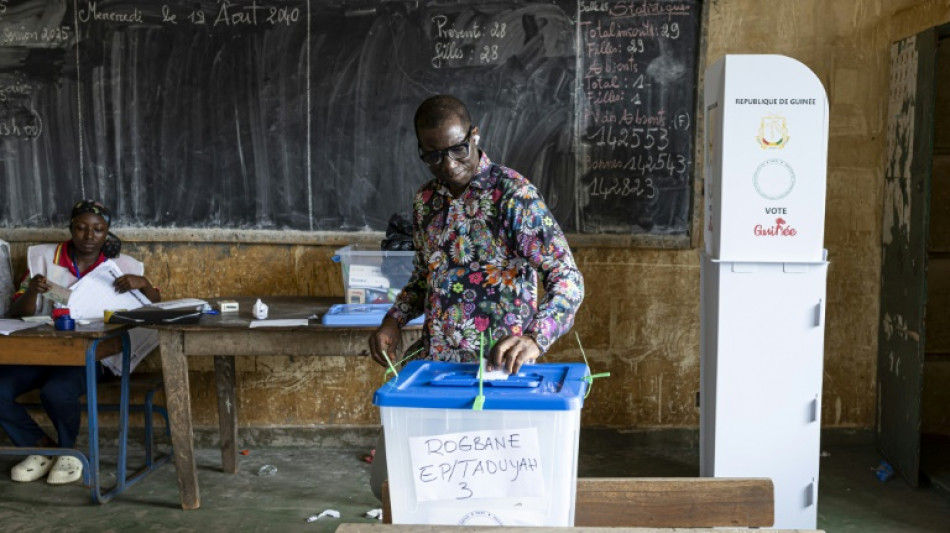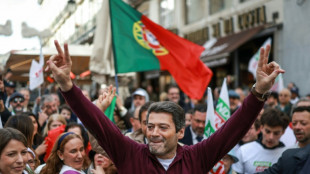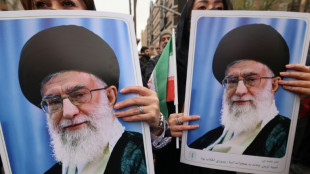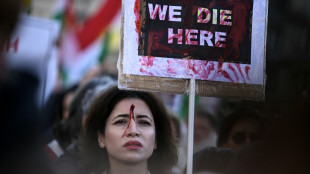
Guineans approve new constitution by wide margin, pave way for elections

Four years after the military seized power, voters in a Guinea referendum have resoundingly chosen to implement a new constitution, with 89 percent supporting the charter, according to official provisional results announced Tuesday evening.
The constitution paves the way for elections in the west African country, but also permits General Mamady Doumbouya, its junta leader, to run for president.
The "yes" vote won with 89.4 percent of ballots, according to the official provisional results announced by Ibrahima Kalil Conde, minister of territorial administration and decentralisation.
According to Conde, total election turnout stood at 86.4 percent.
Final results will be announced by the Supreme Court at an unspecified date.
The opposition, many of whose leaders are based abroad, had called for a boycott, describing the vote as a power grab with predetermined results.
Despite their plea, Guineans flooded to the polls, with the majority interviewed by AFP stating they had voted to move forward with a new constitution.
Some 6.7 million Guineans out of a population of approximately 14.5 million people were eligible to cast a ballot.
- Elections promised -
Campaigning had been strong in the referendum's "yes" camp: rallies, marching bands and posters depicting 40-year-old Doumbouya were prevalent throughout the country.
The "no" campaign was virtually non-existent, mainly carried out on social media and often led by the junta's critics in exile.
Authorities deployed 45,000 members of the security forces across the country Sunday for the vote, along with 1,000 light and armoured vehicles and combat helicopters, the National Gendarmerie said.
The military had initially pledged to return power to civilians before the end of 2024.
Although its authorities are now promising presidential and legislative elections before the end of the year, the junta has not yet set a date.
The new constitution will replace the country's "transitional charter", introduced by the military government, that had prohibited any junta member from running for election.
There is no such restriction in the new constitution, however, paving the way for Doumbouya's candidacy.
- Population divided -
Guineans AFP spoke with were divided between hoping for the return of civilian rule under a new constitution and supporting the junta leader and his potential candidacy in a future presidential election.
For many, repression of freedom under Doumbouya had been a major consideration.
Since 2022, the junta has banned demonstrations and has arrested, prosecuted or pushed into exile several opposition leaders, some of whom were victims of forced disappearances.
On August 23, the junta suspended two of the country's main opposition parties for three months.
Several media outlets have also been suspended and journalists arrested.
Interviewed by AFP on Sunday, the secretary-general of the presidency, General Amara Camara, stated that "this constitution is the profound expression of the aspirations of the people of Guinea".
"Many had expressed doubts about the organisation of this vote, and we have allayed them; we hope that we will also be able to organise the legislative and presidential elections" when the time comes, he said.
H.Reyes--SFF

 London
London

 Manchester
Manchester
 Glasgow
Glasgow
 Dublin
Dublin
 Belfast
Belfast
 Washington
Washington
 Denver
Denver
 Atlanta
Atlanta
 Dallas
Dallas
 Houston Texas
Houston Texas
 New Orleans
New Orleans
 El Paso
El Paso
 Phoenix
Phoenix
 Los Angeles
Los Angeles



